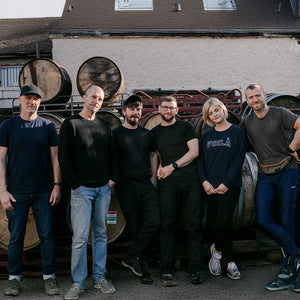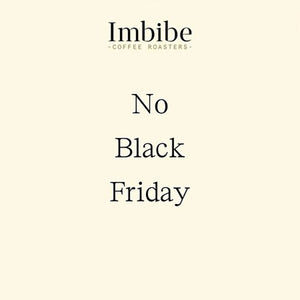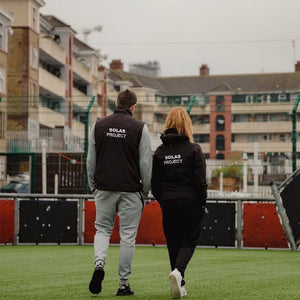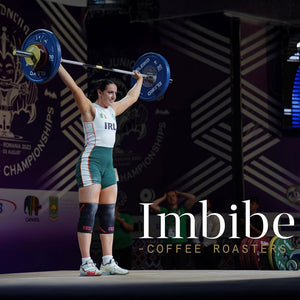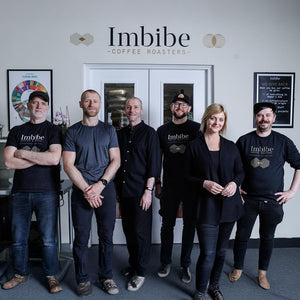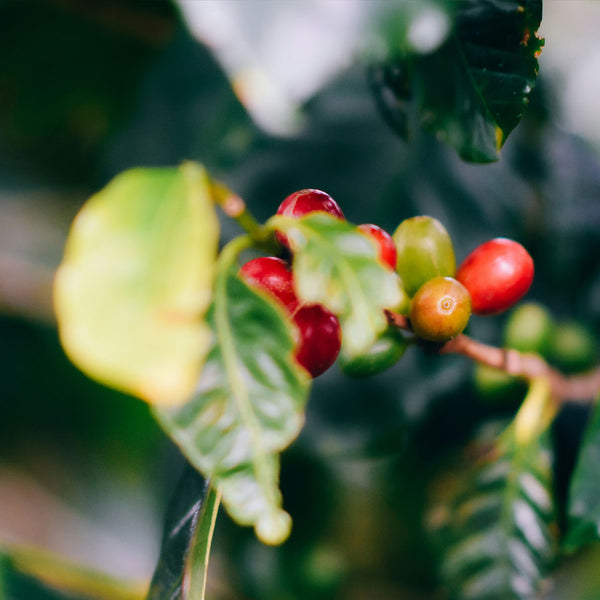
Costa Rica Alejo Castro Kahle
In stock
Pickup currently unavailable
Coffee production began in America in the mid-19th century. It was at that same time that two pioneering families originally from Europe set up a coffee business, the Spanish Castro-Jimenez family in Costa Rica and the German Kahle family in the Chiapas region of Mexico.
Alejo belongs to the fifth generation of the Castro-Kahle family, which has been growing coffee on the slopes of the Poas Volcano in central Costa Rica for more than 100 years. Coffee is not a speciality for the Castro-Kahle clan, but a tradition. They cultivate Caturra, Catuai, Geisha, SL28, Villasarchi, Sarchimor, Obata, San Isidro and Venecia. The family has chosen to conserve some 200 hectares of forest located above their coffee fields in order to preserve the local biodiversity. They have also bought 1,500 hectares of primary forest in the Osa Peninsula in the south of the country.
Fauna and flora are sacrosanct in Costa Rica, and according to Alejo it must be what gives the coffee so much flavour. The soils on the slopes of the Poas Volcano are enriched with the volcanic dust that falls after each eruption. Alejo has a real passion for the different coffee varieties and processes, and each year tries his hand at innovating, combining, concocting and refining his coffees just like an alchemist.
This coffee will suit all brewing methods, including espresso, but our preference was to drink it as filter (v60, French press, aeropress etc).
We selected two lots from this farm. Our tasting/cupping notes for this second coffee come from our Q Grader, Monika. She'll always find at least 7 or 8 aromas, taste notes, etc, and then select the three she finds most pronounced to put on our bags. For this coffee, she selected Red Cherry, Date and Orange.
Process
Natural
Varietal
Caturra
Altitude
1400 – 1500 MASL
Tasting Notes:
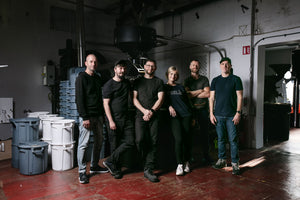
Our Story
We are an Irish coffee roasting business. We have roasted coffees from producers that are genuinely world renowned and whose coffees are frequently used on both a national and international competition stage. We feel we have the quality side of coffee sorted but our business is about a lot more than just selling coffee for profit.
Faqs
Ordering & Business Info
What are your hours of business?
We open from 8 a.m. until 4 p.m. from Monday to Thursday and close at three on Friday's. We are closed on Bank Holidays and weekends.
I’ve ordered online. When will my coffee arrive?
If you're in the local area, we'll deliver it to you the next day. If you order online, you will get a tracking link from our third-party courier service. Our courier collects from the roastery each day around 10 a.m. and our aim to to have any orders from the previous day ready for them to collect.
Do you have a physical coffee shop?
I'm afraid not. We're a roastery and not a cafe. You can collect beans you purchase online from us but we don't sell coffee or take cash on our premises.
Do you sell dark roast coffee?
No, unfortunately, we don't, and we're not saying there's anything wrong with it. It's all about personal preference.
At Imbibe, we prefer to roast to a light-light/Medium roast profile, which brings out the complexity and character of the beans.
Brewing & Recommendations
What’s the best option for espresso?
We would always recommend Kaleidoscope as our flagship coffee, Boa Sopa would be a staff favourite, but any of our certified organic coffees are the ones best suited for espresso.
How should I make this coffee at home?
There are no hard and fast rules or wrong answers here. If you've chosen a blend, then we feel it's suitable for all brew methods, particularly espresso. If you have chosen one of our single origins, we recommend a filter or immersion method of brewing, but this doesn't mean you can't use it for espresso! You can visit our brewing videos section to give you an idea as to how you can best enjoy these coffees at home.
Coffee Knowledge
What’s a coffee variety/varietal?
A coffee varietal is like the "breed" or "type" of a coffee plant. Just like there are different kinds of apples ( Granny Smith, Pink Lady, Honeycrisp) that taste a bit different, there are different kinds of coffee plants, each with its own flavour, size, and growing needs. Examples of coffee varietals INCLUDE Typica, Bourbon, Gesha and Caturra, each with its own distinct flavour profile and characteristics.
What does “process” mean in coffee descriptions?
In coffee, "process" means the way the coffee beans are removed from the fruit (the coffee cherry) after harvesting. The chosen method has a big impact on coffee flavour.
The main processing methods are
- Washed (wet) Process- Cherries are pulped to remove the skin and most of the fruit, then fermented to break down remaining mucilage, washed with water, and dried. This tends to produce a clean, bright, and vibrant flavour profile.
- Natural(Dry)Process- Whole cherries are dried intact, allowing sugars and flavours from the fruit to infuse into the beans. This often results in a sweeter, heavier-bodied cup with a fruity, sometimes wine-like profile.
- Honey (Pulped Natural) Process- The skin is removed, but some fruit remains on the bean during drying, creating a flavour profile between washed and natural - often sweet, smooth, and with balanced acidity.
Over the years, experimental coffee processing methods have gained in popularity (anaerobic, carbonic, etc.)
They are based on the traditional main methods -washed, natural, or honey - with extra steps to create distinctive flavours.
Are all coffees blends?
No. Coffees that are blends have two or more countries or origins on the bag and can contain many coffee varieties. Single-origin coffees are generally one or more varieties of coffee grown in a specific region or country that will highlight a flavour profile from that specific region. Just because you've tried one "Colombian" coffee doesn't mean that you've tried them all. Coffee is an ever-changing drink that yields a unique flavour profile each harvest cycle, so we recommend you try many different coffees from many different origins to find the flavours you like most.

